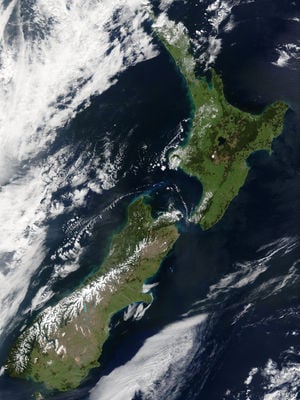
Background
Kaipatiki Project is a grassroots, sustainability initiative based in Auckland, New Zealand. The organization promotes community involvement in preserving and restoring New Zealand’s natural resources.
In 1998, the Kaipatiki Project was founded by a small group of Auckland residents who wanted to combat the effects of urbanization. These residents were concerned with the destruction of New Zealand’s wild lands, and came together to restore native plants, clear weeds, and remove litter. As their efforts increased, Kaipatiki Project soon caught the attention of the local community. The organization soon secured funding for restoration projects, and volunteer numbers began to increase.
Objectives & Principles
The Kaipatiki Project strives to implement sustainable practices within the Auckland community. The project has declared the following objectives:
- To revive the wild-life reserves of the North Shore of Auckland, for the purpose of boosting community health.
- To provide environmental education throughout the community; leading workshops and programs to teach sustainable practices and encourage environmentally conscious behaviors.
Additionally, the Kaipatiki Project opperates on several core principles:
- Ecological restoration through community effort.
- Achieving restoration efforts by means of sustainable practices.
- Behaving responsibly and with respect to local environment.
- Working through an intimate network of volunteers; establishing positive relations between members.
- Creating a community that may thrive within a wholesome environment.
Organization Dynamics
Kaipatiki Project is a certified non-profit organization. They are funded through operating grants, project support grants, self-generated revenue, donations, and paid memberships.
The Kaipatiki Project is managed by a board members, who appoint staff and administration. The organization also relies on volunteers to aid in educational workshops and courses, and to accomplish various community projects.
Resoration & Educational Services
The primary services offered by the Kaipatiki Project are environmental restoration and community education.
Kaipatiki restoration services include:
- Plant & Animal Control- Removal and control of harmful plant species; mulching for soil restoration. Trapping services to reduce population of destructive wildlife.
- Improving Streams- Regularly monitoring the quality of local stream water; implementing measurements to improve water quality.
- Native Plant Regrowth- Ecosourcing seeds and restoring the growth of native plants within their respective reserves.
- Plant Nursery Hosting- Growing thousands of plants that are native to Auckland, to ensure they remain in the ecosystem.
Educational Services:
The Kaipatiki Project hosts educational courses and workshops through local schools and local community centers. These educational sessions aim to teach composting, give information on minimizing waste, and inform community members of the general Auckland ecosystem. Public film screenings about sustainability and environmental protection are occassionally held. In the summer months, the organization hosts guided tours through reserves.
Noteworthy Successes
Yearly, The Kaitpatiki Project receives volunteer aid from over aid 800 individuals, and over 8,000 hours in volunteer time. It instructs thousands of community members though educational efforts within public schools, colleges, and community workshops.
Kaipatiki Project is the only Auckland organization that hosts a native plant nursery. They grow about 70 varieties of plants, and have recorded growing 20,000 plants per year. The Project has planted 95,000 trees since 1998.
Cited Sources
The Kaipatiki Project Website: http://kaipatiki.org.nz/
"Kaipatiki Project Environment Centre: Project Analysis": http://aut.researchgateway.ac.nz/handle/10292/2271